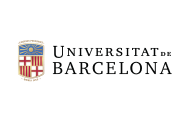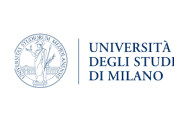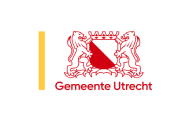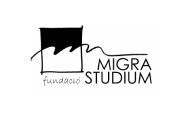Reporting crime as a step towards equality
The Safe Reporting project explicitly promotes victims with irregular migration status’ equal access to justice by fostering a safe environment to report crimes without fear of being deported. The problems to access justice harm not only undocumented victims, who can’t access support services, but also the whole criminal justice system, that without crime reports is less efficient in combating crime.
The effectiveness of this project lies in its evidence-based, participatory and local approach. Coordinated by the University of Barcelona, it gathers public administrations (e.g. city councils), NGOs and research institutions based in four important cities (Barcelona, Milan, Utrecht and Ghent) to improve the situation in these municipalities but, before all, to foster mutual learning and exchange of good practices, as well as to share awareness-raising and training activities and to facilitate cooperation between competent authorities and private stakeholders.
Its European added value, impact and dissemination potential to other Member States and EU institutions is also granted by an effective communication strategy and by the active involvement of PICUM and VSE, the largest NGO platforms related to undocumented migrants and victim’s support.
The project embraces all undocumented migrants, but also NGOs, municipal authorities, police officers and other agents such as lawyers and NGOs workers to:
– Develop pioneering safe reporting strategies
– Assess and deepen already existing safe reporting strategies
– Offer capacity building and training for professionals
OBJECTIVES
Increase the understanding of what safe reporting of crime entails in the case of undocumented victims, which requirements need to be taken into account from a gender-based perspective and what kind of cooperation is needed to grant safe reporting options.
Increase the knowledge of EU and national tools and measures, as well as international duties regarding the rights of undocumented victims.
Due to the project’s local approach, improving the conditions for safe reporting of crime at local level in four important cities in EU.
Increasing and improving the cooperation between local authorities and professionals; and between the local level and other competent tiers of government to enhance effective safe reporting.
Safe Reporting is a participatory project that approaches the problem from a local perspective. Coordinated by the University of Barcelona, the project brings together public administrations, NGOs and research institutions. Safe Reporting aims to promote mutual learning and the exchange of best practices, share activities to increase the awareness and to educate on the subject, and facilitate the cooperation between victims and those who have responsibility roles.








The University of Barcelona
The University of Barcelona coordinates the VISA RoC project. Its participation is centred on the study and development of strategies for safe reporting in the city of Barcelona.
The members who are part of the project are:
Dr. Natalia Caicedo
Associate Professor of Constitutional Law at the UB and Coordinator of the VISA RoC project
Dr. Giorgios Milios
Lecturer in Constitutional Law at the UB
Dr. Simona Sokolovska
PhD in Sociology-Anthropology at the UB
Mr. Oriol Nebot i Nieto
VISA RoC’s Research Assistant
Ms. Juliana Fornasier
VISA RoC’s Project Officer
The University of Milan
The University of Milan is one of the partners of the VISA RoC project, in association with the Municipality of Milan and the NGO “Cooperativa Lotta contro l’Emarginazione”. The contribution of the University of Milan ranges from studying safe reporting for victims of crime with an irregular migration status to raising awareness of the issues and their possible solutions among migrant communities, NGOs and institutions, with the aim of fostering local partnerships and a multi-agency approach, to set up a safe environment where reporting crimes without the fear of deportation or prosecution due to irregular migration status.
The members who are part of the project are:
Prof. Marco Scoletta
Associate Professor of Criminal Law at the UM
Dr. Sara Taverriti
Postdoctoral researcher in Criminal Law at the UM
Dr. Francesca Vitarelli
Postdoctoral researcher in Criminal Law the UM
Dr. Alex Ingrassia
Criminal Lawyer based in Milan
The City of Utrecht
The City of Utrecht is project member within the VISA ROC project. Its participation is centered on conducting research on safe reporting policies within different cities and identifying how policies are implemented.
The members who are part of the project are:
Dr. PhD Patricia Wijntuin
Professor of Public Governance and Management , Utrecht University
Ms. Kelly Bezema
Medior Policy Officer on Migration, City of Utrecht
Dr. Jan Braat
Senior Policy Officer on Migration, City of Utrecht
The City of Ghent
The City of Ghent is one of the city partners of the VISA RoC project. Its participation aims at raising awareness on the topic targeting policy makers and training professionals. The member part of the project representing the City of Ghent is Maaike Buyst, Policy worker on migration.
The Platform for International Cooperation on Undocumented Migrants (PICUM)
The Platform for International Cooperation on Undocumented Migrants (PICUM) leads, together with the University of Barcelona, on the dissemination of the project’s results, including by organising the final international hybrid conference, and provide expertise throughout the implementation of the rest of the project activities.
The members who are part of the project are:
Michele LeVoy
Director
Paul Geraerts
Financial Director
Gianluca Cesaro
Communications Officer
Louise Bonneau
Advocacy Officer
The Institute of Public Security of Catalonia
The Institute of Public Security of Catalonia is a unique centre in teaching and research in our territory, with the mission of training professionals involved in the integral security of Catalonia through the different schools that compose it, among them, the School of Police of Catalonia. This school, in this project, has the role of developing training, in order to train the police officers who work in the police stations, to promote a safe environment for undocumented immigrants who want to report crimes.
Migra Studium
Migra Studium was founded in 2003 by the Society of Jesus in Catalonia, with the aim of caring for and accompanying the most vulnerable migrants who arrive in the city of Barcelona. Based on values such as dialogue, justice and solidarity, the Foundation works to build a more integrated society in its intercultural and religious aspects. It works for the dignity and rights of the most vulnerable migrants and their children, through reception, training and advocacy. It also works to raise awareness in the society about cultural and religious diversity, which is done this with the participation of the migrants themselves, with the collaboration of volunteers and establishing alliances with other social actors with whom the cause is shared.
